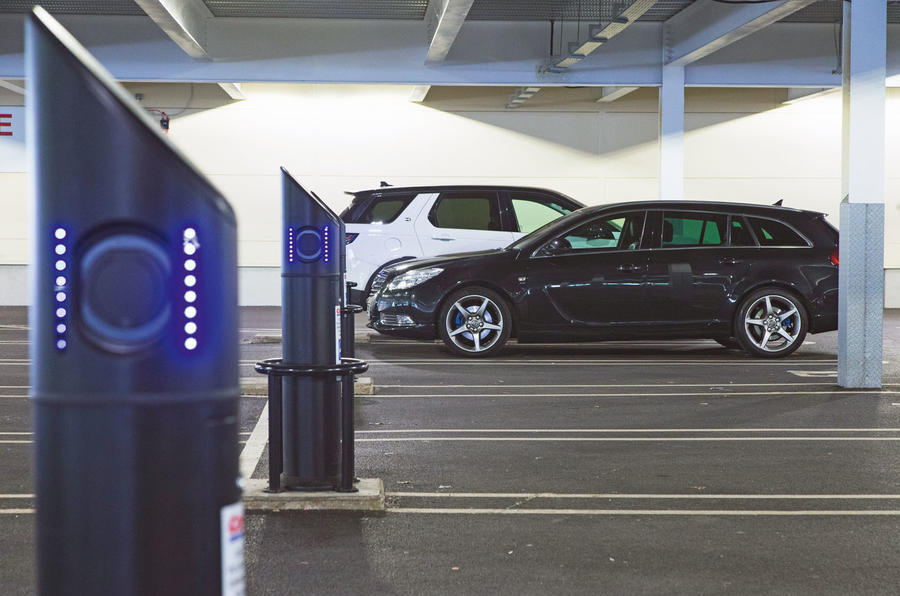The recent announcement by the UK government of an additional £106 million investment in low emission vehicle technology and development is a welcome boost to a section of the industry that is finally starting to thrive.
But let’s not kid ourselves into thinking that cash injection alone will somehow turn us into the “world leader” in green vehicle tech – especially since that £106milion is a mere 0.1% of the projected final bill for the ‘HS2’ rail development.
It’s a drop in the ocean compared to what will need to be spent in the long-term, then, but alongside previous government investments the foundations are being laid. You only have to take a look at the ‘Electric Nation’ supplement included with this week’s Autocar print magazine (in Britain) to see how many UK companies are leading the way with innovations in green vehicle tech and infrastructure.
Even Aston Martin, historically more of an old-school, ‘tweed jacket and a pint of bitter’ British sports car brand, has been thrust into the 21st century, with its first full EV, the Rapide E, entering limited production early next year. And that’s just the start, with a new “home of electrification” plant in St Athan, Wales, and the launching of the Lagonda luxury brand with an all-electric lineup. And, of course, there's also the Jaguar I-Pace, the electric SUV that launched ahead of efforts by the firm's various German rivals.
A quick walk around this year’s bigger and busier-than-ever Cenex Low Carbon Vehicle event demonstrates just how many businesses, from every area of the industry, are keen and ready to hop on board the upcoming green vehicle gravy train - labelled by one EV expert as ‘the second industrial revolution”.
Perhaps the government’s recent rhetoric on diesel vehicles was an intentional ploy, then. They saw how many carmakers relied on the fuel, and thought (correctly) that threats of higher taxation and city bans would gradually drive consumers away, forcing those brands to accelerate their long-mooted EV and hybrid strategies.
We’ve said this time and time again, but what is sorely needed now is a reliable, standardised national charging network to remove the obstacles and doubts many buyers still have about electric cars, alongside a renewed focus on company fleets. Then the industry won’t need to rely on handouts from Number 10.
Read more





Join the debate
Add your comment
The cart before the horse?
Clearly, the taxzs on diesel and petrol have always been at the whim of the Chacellor and his abacus but these taxes remain a very important source of income to the government regardless of their proportion.
Equally, the government (any for the last 20 years) has failed to recognise that the equation has changed with the global warming factor.
Combine these things and we are left with the manufacturers trying to out-advertise each other with rafts of new models but with no viable infrastructure in which to exploit these models: re-charging is still pretty much 'ad hoc' and 'range anxiety' is still a major obstacle to many purchases outside cities, and even there...
To add spice to the mix, the government will one day have to show its hand about taxation and the revenue to the Chancelor: until then, any calculations of running costs are skewed and meaningless.
Of course, we are also yet to see how the electricity companies are going to balance their books when faced with installing the necessary infrastructure: the work involved is pharaonic and its cost has to be recouped somehow.
The future may be 'blue' but it sure ain't rosy!
Some advice
In terms of production of batteries, I don't see Britain ever being more than a regional supplier because of how far removed we are from the raw materials. Tesla's been working to annex supplies from North America to reduce transport costs, production complexity and upstream CO2 emissions, and I'd expect this will have to be the norm to be cost-competitive in an EV-dominated future. Even today, most materials in a lithium-ion battery are found in SE Asia, so it's where most cell manufacturing happens.
The key thing for Britain will be to pursue the technical development of batteries. We're a worldwide centre of excellence for automotive R&D, with most of the F1 teams and a bunch of specialist research centres, so extending that to EV technology should be a sensible progression and a way to protect that status. But it won't happen automatically, it needs investment, training and education.
Would also be nice if they'd fix the public charging situation by ending Ecotricity's motorway services exclusivity deal, legislating to demand charger reliability, and combine all the RFID cards, apps, subscriptions and tariffs into one universal pay-as-you-go system.
depends
upon how quickly they get scrapped. have you seen the teslas being junked due to minor damage?